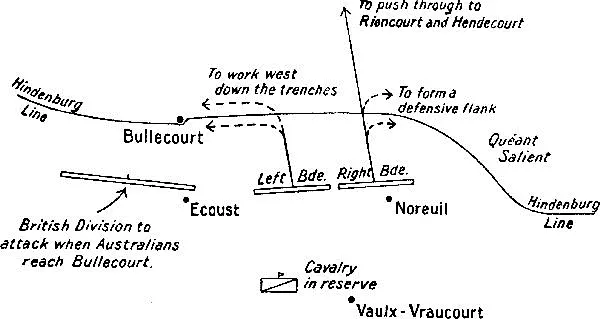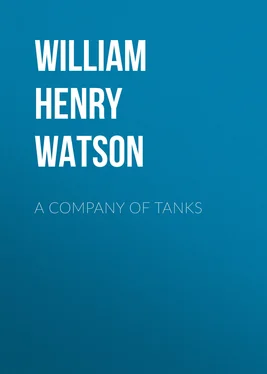William Henry Lowe Watson - A Company of Tanks
Здесь есть возможность читать онлайн «William Henry Lowe Watson - A Company of Tanks» — ознакомительный отрывок электронной книги совершенно бесплатно, а после прочтения отрывка купить полную версию. В некоторых случаях можно слушать аудио, скачать через торрент в формате fb2 и присутствует краткое содержание. Жанр: foreign_prose, История, foreign_edu, foreign_antique, на английском языке. Описание произведения, (предисловие) а так же отзывы посетителей доступны на портале библиотеки ЛибКат.
- Название:A Company of Tanks
- Автор:
- Жанр:
- Год:неизвестен
- ISBN:нет данных
- Рейтинг книги:3 / 5. Голосов: 1
-
Избранное:Добавить в избранное
- Отзывы:
-
Ваша оценка:
- 60
- 1
- 2
- 3
- 4
- 5
A Company of Tanks: краткое содержание, описание и аннотация
Предлагаем к чтению аннотацию, описание, краткое содержание или предисловие (зависит от того, что написал сам автор книги «A Company of Tanks»). Если вы не нашли необходимую информацию о книге — напишите в комментариях, мы постараемся отыскать её.
A Company of Tanks — читать онлайн ознакомительный отрывок
Ниже представлен текст книги, разбитый по страницам. Система сохранения места последней прочитанной страницы, позволяет с удобством читать онлайн бесплатно книгу «A Company of Tanks», без необходимости каждый раз заново искать на чём Вы остановились. Поставьте закладку, и сможете в любой момент перейти на страницу, на которой закончили чтение.
Интервал:
Закладка:
My tanks were detailed to co-operate very closely with the infantry. The right section (Wyatt's) were given three duties: first, to parade up and down the German wire immediately to the right of the front of the attack; second, to remain with the infantry in the Hindenburg Line until the trenches had been successfully "blocked" and the defensive flank secured; third, to accompany the infantry in their advance on Riencourt and Hendecourt.

The centre section (Field's) were required to advance between the two brigades and plunge into the Hindenburg Line. This movement was made necessary by the decision to attack not on a continuous front but up two slight spurs or shoulders. The Hindenburg Line itself lay just beyond the crest of a slope, and these almost imperceptible shoulders ran out from the main slope at right angles to the line. It was thought that the depression between them would be swept by machine-gun fire, and it was decided in consequence to leave the attack up the depression to the tanks alone.
My left section (Swears') were to precede the infantry of the left Australian brigade. They were to obtain a footing in the Hindenburg Line and then work along it into Bullecourt. Whether, later, they would be able to assist the British infantry in their attack on the trenches to the west of Bullecourt was a matter for their discretion.
The atmosphere of the conference was cheerless. It is a little melancholy to revive and rebuild the plan of an attack which has been postponed very literally at the last moment. The conference was an anticlimax. For days and nights we had been completing our preparations. The supreme moment had come, and after hours of acute tension had passed without result. Then again, tired and without spirit, we drew up fresh plans. War is never romantic because emergencies, which might be adventures, come only when the soldier is stale and tired.
We hurried back to the camp at Behagnies and composed fresh orders, while Jumbo re-marked his maps and reshuffled his aeroplane photographs. At dusk Jumbo and I started out in the car for Noreuil, but at Vaulx-Vraucourt we decided to leave the car as the road was impossible. It was heavy with mud and slush and we were far from fresh. We passed Australians coming up and much transport—in places the road was almost blocked. After an hour or more we came to the valley above Noreuil, full of new gun-pits. Our tanks lay hidden against the bank at the side of the road, shrouded in their tarpaulins. My men were busily engaged in making them ready. One engine was turning over very quietly. It was bitterly cold, and the snow still lay on the downs.
We struggled on to a ruined house at the entrance to the village. One room or shed—it may have been a shrine—constructed strongly of bricks, still stood in the middle of the wreckage. This my officers had made their headquarters. I gave instructions for all the officers to be collected, and in the meantime walked through the street to one of the two brigade headquarters in the village.
This brigade was fortunate in its choice, for it lay safe and snug in the bowels of the earth. An old brewery or factory possessed whole storeys of cellars, and the brigade office was three storeys down.
Haigh and Swears were discussing operations with the brigadier. They were all under the illusion that the postponed attack would take place as originally planned, and bitter was the disappointment when I told them that the orders had been changed. I gave the general and his brigade-major a rough outline of the new scheme, and took Swears and Haigh back with me to the ruins.
All my officers were assembled in the darkness. I could not see their faces. They might have been ghosts: I heard only rustles and murmurs. I explained briefly what had happened. One or two of them naturally complained of changes made at such a late hour. They did not see how they could study their orders, their maps, and their photographs in the hour and a half that remained to them before it was time for the tanks to start. So, again, I set out carefully and in detail the exact task of each tank. When I had finished, we discussed one or two points, and then my officers went to their tanks, and I returned to brigade headquarters, so that I might be in touch with the colonel and the Division should anything untoward happen before zero.
The night passed with slow feet, while my tanks were crawling forward over the snow. The brigade-major re-wrote his orders. Officers and orderlies came in and out of the cellar. We had some tea, and the general lay down for some sleep. There was a rumour that one of the tanks had become ditched in climbing out of the road. I went out to investigate, and learned that Morris's tank had been slightly delayed. It was, unfortunately, a clear cold night.
When I returned to the cellar the brigade staff were making ready for the battle. Pads of army signal forms were placed conveniently to hand. The war diary was lying open with a pencil beside it and the carbons adjusted. The wires forward to battalion headquarters were tested. Fresh orderlies were awakened.
Apparently there had been little shelling during the early part of the night. Noreuil itself had been sprinkled continuously with shrapnel, and one or two 5.9's had come sailing over. Forward, the railway embankment and the approaches to it had been shelled intermittently, and towards dawn the Germans began a mild bombardment, but nothing was reported to show that the enemy had heard our tanks or realised our intentions.
I received messages from Haigh that all my tanks were in position, or just coming into position, beyond the railway embankment. Zero hour was immediately before sunrise, and as the minutes filed by I wondered idly whether, deep down in the earth, we should hear the barrage. I was desperately anxious that the tanks should prove an overwhelming success. It was impossible not to imagine what might happen to the infantry if the tanks were knocked out early in the battle. Yet I could not help feeling that this day we should make our name.
We looked at our watches—two minutes to go. We stared at the minute-hands. Suddenly there was a whistling and rustling in the distance, and a succession of little thumps, like a dog that hits the floor when it scratches itself. The barrage had opened. Constraint vanished, and we lit pipes and cigarettes. You would have thought that the battle was over. We had not blown out our matches when there was a reverberating crash overhead. Two could play at this game of noises.
Few reports arrive during the first forty minutes of a battle. Everybody is too busy fighting. Usually the earliest news comes from wounded men, and naturally their experiences are limited. Brigade headquarters are, as a rule, at least an hour behind the battle. You cannot often stand on a hill and watch the ebb and flow of the fight in the old magnificent way.
At last the reports began to dribble in and the staff settled down to their work. There were heavy casualties before the German wire was reached. The enemy barrage came down, hot and strong, a few minutes after zero.... Fighting hard in the Hindenburg trenches, but few tanks to be seen.... The enemy are still holding on to certain portions of the line.... The fighting is very severe.... Heavy counter-attacks from the sunken road at L. 6 b. 5.2. The news is a medley of scraps.
Soon the brigadier is called upon to act. One company want a protective barrage put down in front of them, but from another message it seems probable that there are Australians out in front. The brigadier must decide.
One battalion asks to be reinforced from the reserve battalion. Is it time for the reserve to be thrown into the battle? The brigadier must decide.
Читать дальшеИнтервал:
Закладка:
Похожие книги на «A Company of Tanks»
Представляем Вашему вниманию похожие книги на «A Company of Tanks» списком для выбора. Мы отобрали схожую по названию и смыслу литературу в надежде предоставить читателям больше вариантов отыскать новые, интересные, ещё непрочитанные произведения.
Обсуждение, отзывы о книге «A Company of Tanks» и просто собственные мнения читателей. Оставьте ваши комментарии, напишите, что Вы думаете о произведении, его смысле или главных героях. Укажите что конкретно понравилось, а что нет, и почему Вы так считаете.












